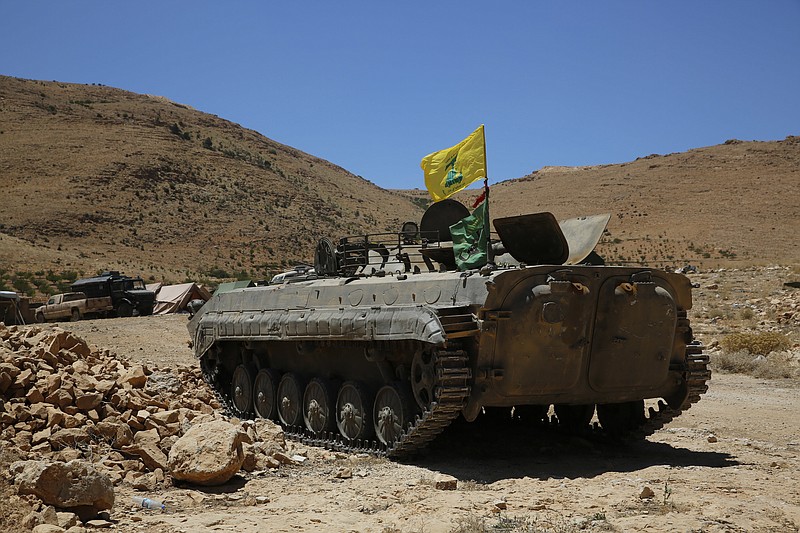BEIRUT (AP) - Hezbollah and a Syrian affiliate to Al-Qaida began exchanging the bodies of dead fighters along the Lebanese-Syrian border on Sunday in the first stage of a settlement to restore order to a contested frontier zone.
The Lebanese militant group Hezbollah was handing over the bodies of nine al-Qaida fighters in exchange for the bodies of five of its own, following two weeks of battles along the rugged border, its Al-Manar TV station reported.
The exchange, like the battles that preceded it, underscores Hezbollah's clout in regional affairs as it clears the border of al-Qaida and Islamic State group militants, with the Lebanese government largely a bystander.
U.S. President Donald Trump credited the Lebanese government with standing up to Hezbollah, last week, but the Lebanese Army assumed a defensive position behind Hezbollah lines in the course of the battles in the Arsal badlands. Hezbollah is also a member of Prime Minister Saad Hariri's government.
The U.S. classifies Hezbollah as a terrorist organization.
The Syrian military provided air support to Hezbollah's ground operations around Arsal. Hezbollah's Secretary General, Hassan Nasrallah, said in a speech Wednesday his fighters fought "shoulder to shoulder" with Syrian soldiers on the Syrian side of the border.
Twenty-six Hezbollah fighters and between 47 and 90 Al-Qaida fighters were killed in the fighting, Hezbollah media officials told reporters on a tour of the Arsal badlands on Saturday.
The fighting ended with a cease-fire Thursday for negotiations to allow refugees, fighters, and family members to leave to Syria's northwest Idlib province, leaving Hezbollah and the Lebanese and Syrian states in control of this corner of the border. Up to 9,000 Syrians could be seeking resettlement, al-Manar reported.
Lebanon has been buffeted by the fallout and occasional spillover of the civil war next door. It has taken in 1 million refugees, according to the U.N., and suffered a number of bomb blasts claimed by the Islamic State group and al-Qaida affiliated groups.
The border town of Arsal was overrun by al-Qaida and Islamic State militants in 2014 before Hezbollah and the Lebanese Army sent them back. They have remained ensconced in the rugged hills east of Arsal ever since.
Around 80,000 refugees live near Arsal. Many of them were displaced by fighting between rebels and Hezbollah in 2012 and 2013.
Syria is fractured after six years of civil war, and an al-Qaida affiliate controls Idlib. The war broke out after President Bashar Assad government cracked down on demonstrations for reforms in 2011. The Britain-based Syrian Observatory for Human Rights monitoring group estimates some 475,000 people have been killed, and Assad remains in power in Damascus.
------------
Associated Press producer Bassam Hatoum in Beirut contributed to this report.
